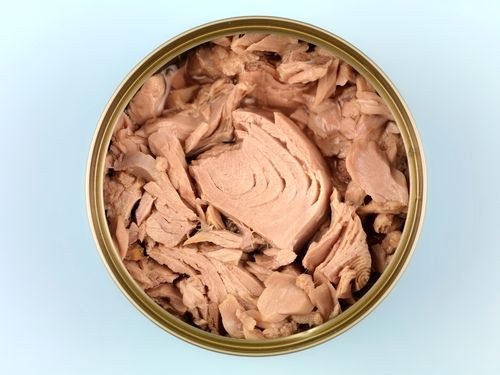Pregnant Women Advised To Avoid All Tuna, But Don't Worry: There Are Other Fish In The Sea

This week, Consumer Reports put the Food and Drug Administration’s (FDA) fish recommendation (12 ounces per week) for pregnant women on the hook. Fish may be a good source of lean protein and heart-healthy omega-3s, but some fish are also rich in methylmercury.
Pregnant women who consume high amounts of this type of mercury risk neurological damage to the fetus. High levels have been reported in swordfish, king mackerel, shellfish, and canned tuna. Tuna is the second most commonly eaten seafood, according to the United States Environmental Protection Agency (EPA), and Consumer Reports believes the FDA underestimates the actual amount of mercury in each can.
Some cans may have an amount that’s below average, but others could contain twice the average amount. Cans of albacore, or white, tuna have even been shown to have higher levels of mercury than canned light tuna, hence the EPA’s 6-ounce recommendation compared to the standard 12-ounce.
Despite this concern, the FDA stands by their recommendation. “Based on a review of the latest science, we have concluded that it is possible for pregnant and breastfeeding women, and women who might become pregnant, to increase growth and developmental benefits to their children by eating more fish than these groups of women typically do,” a representative told Consumer Reports. “This can be done while still protecting them from the potentially harmful effects of methylmercury in fish.”
This may seem like a blow to fish-eating pregnant women, but it's not. Albacore tuna, for example, has lower levels of mercury when caught in the western U.S. and Canadian waters, reported Rodale News. This is because they’re younger and have had less time to consume the mercury. However, you won't find the safest cans on grocery store shelves. Heritage Foods USA, Pacific Fleet and Wild Planet are a few online retailersknown for their sustainable products.
Don’t even like tuna? The Monterey Bay Aquarium devises a “Super Green” list of seafood each year of the options that contain the lowest levels of mercury and provides at least 250 milligrams of omega-3s. Their most recent list ranks Atlantic mackerel, freshwater Coho salmon, pacific sardines, canned- and wild-caught Alaskan salmon as the best of the best.
The National Institutes of Health also deems supplements, like fish oil and algae-based docosahexaenoic acid, as an alternative way to get omega-3s. This is especially important for women under- or not-at-all consuming fish, as the NIH found omega-3s can support fetal growth, namely the brain and eye, as well as prevent perinatal depression. One randomized trial of 533 pregnant women found fish oil could prolong gestational length by four days. This decreases risk for pre-term birth, the leading cause of death of newborns.



























